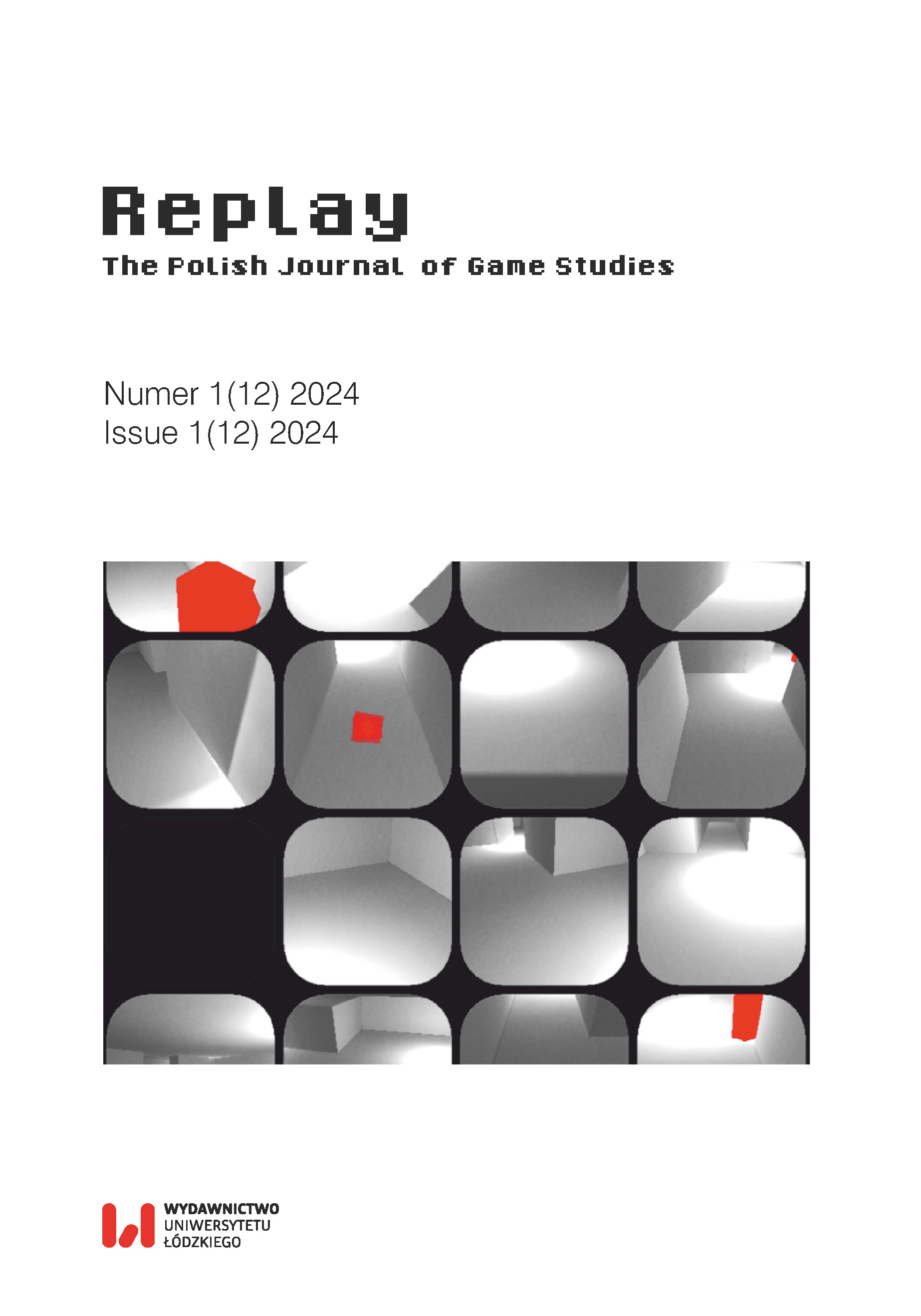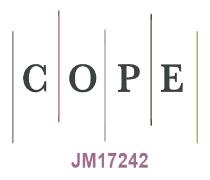Farming games in the cozy aesthetic a fantasy of dreams of a simple life
DOI:
https://doi.org/10.18778/2391-8551.12.06Keywords:
cozy games, farm games, ritual time, monotony, FarmeramaAbstract
The article is devoted to the trend of farm games, which can be described using the aesthetics of cozy / “coziness”. The countryside life they create is based on cultural phenomena (mainly slow cinema and idyllic images derived from popular songs). What characterizes cozy games is creating the impression of slowness and putting relationships above competition or achieving the intended goal. For this reason, the stages of “life” on the farm, which make up the player’s functioning in the game – sowing, waiting for the harvest, and harvest itself – become the goal in themselves, constituting a source of satisfaction thanks to their repetition. The cyclicality inherent in the routine corresponds to the renewal proper to ritual time. The participation in this act of the user of the game allows them to enter this time in order to take part in a ritual that gives additional meaning to what is monotonous. The aim of the article is to present farm games as a realization in the digital space of a phantasm about a “simple life,” which is a response to the social reality dynamically changing due to the influence of technology. At the same time, this dream is an artistic manifestation of a broader existential project, which is the slow life trend.
References
Baird, D. (1997). Scientific Instrumental Making, Epistemology, and Conflict between Gift and Commodity Economies. Society for Philosophy Qaurterly Electronic Journal, 2(3–4), 127–139.
Google Scholar
DOI: https://doi.org/10.5840/techne199723/417
Bauman, Z. (2006). Płynna nowoczesność (tłum. T. Kunz). Wydawnictwo Literackie.
Google Scholar
Bauman, Z. (2018). Retrotopia. Jak rządzi nami przeszłość (tłum. K. Lebek). Wydawnictwo Literackie.
Google Scholar
DOI: https://doi.org/10.14515/monitoring.2018.6.22
Borkowski, R. (2001). Cywilizacja. Technika. Ekologia. Wybrane problemy rozwoju cywilizacyjnego u progu XXI wieku. AGH Uczelniane Wydawnictwa Naukowo-Dydaktyczne.
Google Scholar
Brach-Czajna, J. (1992). Szczeliny istnienia. Państwowy Instytut Wydawniczy.
Google Scholar
Bromboszcz, R. (2018). Wspólnota transferu a obyczaj daru. Dobrobit i gospodarka współdzielenia w cyberprzestrzeni. Kultura i Wartości, 153–172.
Google Scholar
DOI: https://doi.org/10.17951/kw.2018.25.153
Brooks, M. (reż.). (1995). Dracula – wampiry bez zębów [film]. Gaumont – Brooksfilms – Castle Rock Entertainment.
Google Scholar
Bukraba-Rylska, I. (2010). Obraz wsi w debacie publicznej po roku ‘89. Wieś i Rolnictwo, 3, 56–72.
Google Scholar
DOI: https://doi.org/10.53098/wir.2010.3.148/04
Callois, R. (1961/1997). Gry i ludzie (tłum. A. Tatarkiewicz i M. Żurowska). VOLUMEN.
Google Scholar
Chang, A.Y. (2012). Back to the Virtual Farm: Gleaning the Agriculture-Management Game. Interdisciplinary Studies in Literature and Environment, 19(2), 237–252.
Google Scholar
DOI: https://doi.org/10.1093/isle/iss007
Charzyński, B. (2022). Styl cottagecore: sposób na przytulne wnętrza inspirowane wiejską idyllą. Poznaj najważniejsze cechy cottagecore w aranżacji. Morele. https://home.morele.net/wnetrza/styl-cottagecore-sposob-na-przytulne-wnetrza-inspirowane-wiejska-idylla-poznaj-najwazniejsze-cechy-cottagecore-w-aranzacji/ (data dostępu: 3.04.2024).
Google Scholar
Chryniewicz, J.T. (2014). Społeczeństwo ryzyka. Teoria, model, analiza krytyczna. Przegląd Socjologiczny, 2, 9–33.
Google Scholar
Czapliński, P. (1999). Nuda przedstawienia albo proza najnowsza wobec istnienia. W: P. Czapliński, P. Śliwiński (red.), Nuda w kulturze (s. 174–186). Rebis.
Google Scholar
Dąbrowski, A. (2014). Czym są emocje? Prezentacja wieloskładnikowej teorii emocji. Analiza i Egzystencja, 123–146.
Google Scholar
Dobreprogramy.pl (bd.). Farmerama. https://www.dobreprogramy.pl/farmerama,program,windows,6628567848732289 (data dostępu: 26.04.2023).
Google Scholar
Doroszewski, W. (1963). Słownik języka polskiego. Państwowe Wydawnictwo Naukowe.
Google Scholar
Drożdż-Szczybura, M. (2016). Rustykalne formy rekreacji realizowane i kreowane przez mieszkańców współczesnych miast. Środowisko Mieszkaniowe, 85–93.
Google Scholar
Dziewanowska, K., & Kacprzak, A. (2013), Ekologiczna konsumpcja na pokaz. Analiza społecznych i marketingowych skutków kreowania „eko-ikon”. Zeszyty Naukowe Uniwersytetu Szczecińskiego. Problemy Zarządzania, Finansów i Marketingu, 39–53.
Google Scholar
Eliade, M. (1970). Sacrum, mit, historia. Wybór esejów (tłum. A. Tatarkiewicz). Państwowy Instytut Wydawniczy.
Google Scholar
Farca, G. (2023). Farming a Cosy Utopia: A Regenerative Escape to Simpler Times. Conference Proceedings of DiGRA 2023. http://digra.org:9998/DiGRA_2023_CR_3057.pdf (data dostępu: 15.04.2024).
Google Scholar
Filiciak, M. (2010). Internet – społeczne metamedium. W: W. Godzic (red.), Media audiowizualne (s. 104–124). WAiP – Academica.
Google Scholar
Foss, S.K. (1989). Rhetorical Criticism as the Asking of Questions. Communication Education, 3 (July), 191–196.
Google Scholar
DOI: https://doi.org/10.1080/03634528909378755
Gabriel, S. (2019). The Potential of Digital Games for Learning and Teaching. W: W. Elmenreich, R.R. Schallegger, F. Schnitz, S. Gabirel, G. Polsterl, W.B. Ruge (red.), Savegame. Agency, Desing, Engineering (s. 9–30). Springer VS.
Google Scholar
Geertz, C. (1990). O gatunkach zmąconych (Nowe konfiguracje myśli społecznej). (Tłum. Z. Łapiński). Teksty Drugie, 1(2), 113–130.
Google Scholar
Grynaprzegladarke.net (bd.). Gry farmerskie. https://grynaprzegladarke.net/gry-farmerskie/ (data dostępu: 22.04.2023).
Google Scholar
Jagusiak, J. (2023). Najlepsze gry farmerskie, o których zapominamy! Desercik.mmo. https://www.desercik.pl/najlepsze-gry-farmerskie-o-ktorych-zapominamy/ (data dostępu 22.04.2023).
Google Scholar
Kozioł, P. (1998). Ekologia głęboka Arne Naessa – wizja panteistycznej religii współczesności. Humanistyka i Przyrodoznawstwo, 4, 85–100.
Google Scholar
lapisik (2017/2024), Recenzja Farmerama – najlepsza gra farmerska jaka powstała? Gamehag. https://gamehag.com/pl/artykuly/recenzja-farmerama---najlepsza-gra-farmerska-jaka-powstala (data dostępu: 9.01.2024).
Google Scholar
Leśniewska, G. (2010). Wieś jako miejsce życia i pracy. W: B. Kryk (red.), Zrównoważony rozwój obszarów wiejskich. Wybrane aspekty społeczne (s. 128–145). Wydawnictwo Economicus.
Google Scholar
Lewis, M.L., Weber, R., & Bowman, N.D. (2008). “They May Be Pixels, But They’re MY Pixels”: Developing a Metric of Character Attachment in Role-Playing Video Games. Cyber Psychology & Behavior, 11(4), 515–518. https://psycnet.apa.org/doi/10.1089/cpb.2007.0137
Google Scholar
DOI: https://doi.org/10.1089/cpb.2007.0137
Moskal, S. (2005). Przemiany kulturowe polskiej wsi. Krakowskie Studia Małopolskie, 35–43.
Google Scholar
DOI: https://doi.org/10.15804/ksm200503
Sipińska, U. (1981). Chcę wyjechać na wieś [piosenka]. Na płycie W podróży. Wifon.
Google Scholar
Stańczyk, M. (2019). Czas w kinie. Doświadczenie temporalne w Slow Cinema. Wydawnictwo Uniwersytetu Jagiellońskiego.
Google Scholar
Stasiuk, A. (2001). Opowieści galicyjskie. Wydawnictwo Czarne.
Google Scholar
Sulima, R. (2014). Społeczne wyobrażenia wsi na przełomie XX i XXI wieku. Wieś i Rolnictwo, 2, 57–63.
Google Scholar
DOI: https://doi.org/10.53098/wir.2014.2.163/04
Szlendak, T., Olechnicki, K. (2017). Nowe praktyki kulturowe Polaków. Megaceremoniały i subświaty. Wydawnictwo Naukowe PWN.
Google Scholar
Śnieżko, D. (1997). Mit wieku złotego w literaturze polskiego renesansu. Wzory – warianty – zastosowania. Wydawnictwo Naukowe „Semper”.
Google Scholar
Tuan, Y.-F. (1977/1987). Przestrzeń i miejsce (tłum. A. Morawińska). Państwowy Instytut Wydawniczy.
Google Scholar
Vanderhoef, J. (2021). Casual Threats: The Feminization of Casual Video Games. Ada: A Journal of Gender, New Media, and Technology, 2.
Google Scholar
Waszkiewicz, A., & Bakun, M. (2020). Towards the Aesthetics of Cozy Video Games. Journal of Gaming & Virtual Worlds, 12(3), 225–240.
Google Scholar
DOI: https://doi.org/10.1386/jgvw_00017_1
Wolni Farmerzy (bd.). Darmowe gry farmerskie na przeglądarkę. https://www.wolnifarmerzy.pl/gry-farmerskie/ (data dostępu: 22.04.2023).
Google Scholar
Wróblewski, M. (2009). Gra jako model społeczny. O potrzebie grania w społeczeństwie ponowoczesnym. Homo Ludens, 1(1), 289–301.
Google Scholar
Barone, E. (2016). Stardew Valley. Chucklefish.
Google Scholar
Bigpoint. (2009–). Farmerama. Bigpoint.
Google Scholar
Cleversan Software. (2021). Farm Manager. Play Way.
Google Scholar
Gameloft Montreal. (2023). Disney Dreamlight Valley. Gameloft.
Google Scholar
Goodgame Studios, Altigi GmBH. (2012). Big Farm. Goodgame Studios.
Google Scholar
Ice Flames. (2018). Pure Farming. Techland.
Google Scholar
Mydel, M., Stankiewicz, P. (2005). Wiochmen Rejser. Kuźnia Gier.
Google Scholar
Mydel, M., Stankiewicz, P. (2007). Wiochmen 2. Kuźnia Gier.
Google Scholar
Mydel, M., Stankiewicz, P. (2011). Wiochmen: Wesele. Kuźnia Gier.
Google Scholar
Nintendo i in. (2001–2020). Animal Crossing. Nintendo.
Google Scholar
Phoenix Labs. (2023). Fae Farm. Phoenix Labs.
Google Scholar
Plinga. (2014). Royal Story.
Google Scholar
Stairway Games. (2023). Coral Island. Humble Games.
Google Scholar
Ten Square Games. (2014–). Ale Folwark. Ten Square Games.
Google Scholar
ThrustVector9 [właśc. ?]. (2022). Farmers Stealing Tanks. Pixel Forest.
Google Scholar
Upjers. (2009–). Wolni Farmerzy. Upjers.
Google Scholar
Upjers. (2013–). KapiFarm. Upjers.
Google Scholar
Wada, Y., Hashimoto, Y. (1996). Harvest Moon. Nintendo.
Google Scholar
Downloads
Published
How to Cite
Issue
Section
License

This work is licensed under a Creative Commons Attribution-NonCommercial-NoDerivatives 4.0 International License.










